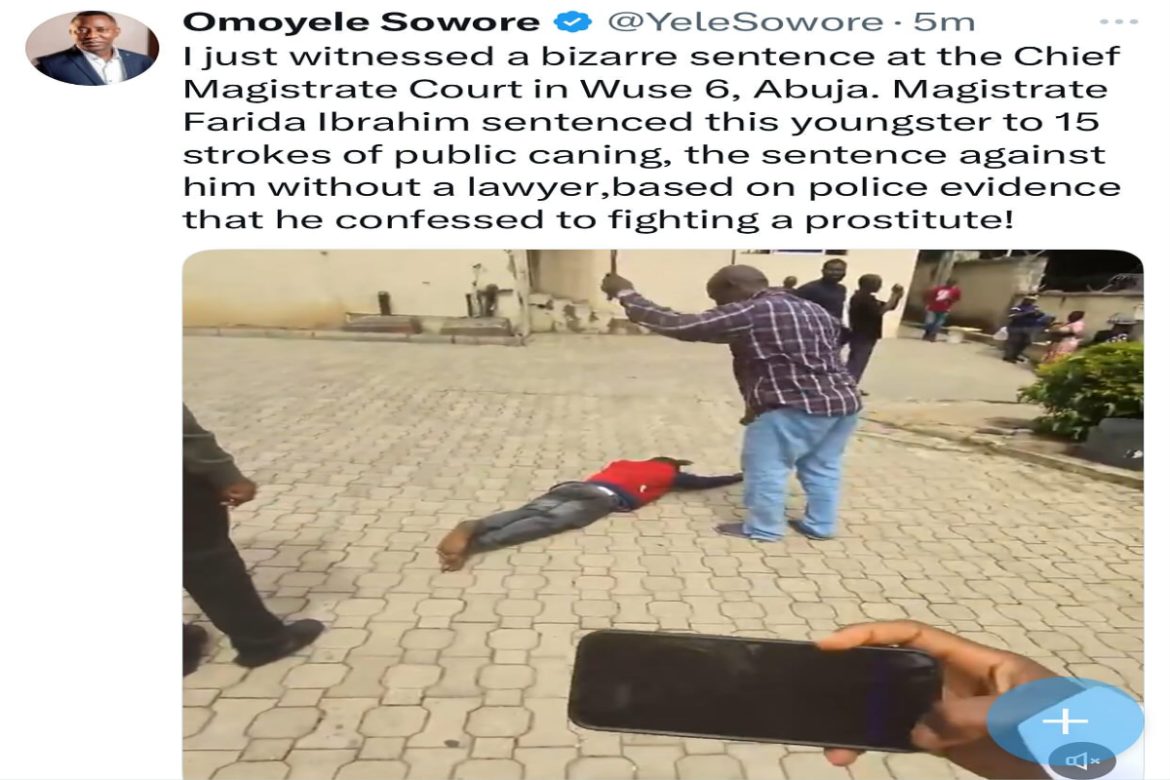Human rights activist and former presidential candidate Omoyele Sowore has strongly condemned a court ruling that sentenced a young man to 15 strokes of the cane for allegedly engaging in a fight with a sex worker. The incident, which reportedly occurred earlier this week, has reignited a national conversation about the place of corporal punishment in Nigeria’s judicial system.
Taking to social media, Sowore described the punishment as “barbaric, inhumane, and grossly outdated,” criticizing the presiding judge for imposing what he called a “medieval” sentence that violates fundamental human dignity.
“You don’t whip justice into people’s backs with canes,” Sowore wrote. “The courts should not be the place where the rights of citizens especially the poor are further brutalized.”
Details of the case remain scarce, but local reports indicate that the unnamed young man was involved in a physical altercation with a prostitute, leading to his arrest and summary trial. The judge’s decision to administer corporal punishment in an open court setting drew immediate backlash from rights advocates and civil society organizations.
Many questioned why alternative legal remedies such as community service, fines, or rehabilitation were not considered in place of public flogging, which is increasingly seen as inconsistent with Nigeria’s obligations under international human rights treaties.
Legal practitioners are now divided over the legality of such sentences. While some point out that Area and Customary Courts in parts of Nigeria still have discretionary powers to issue corporal punishment, others argue that such rulings violate constitutional protections and should be struck down.
“There is no place for physical punishment in a modern justice system,” said Barr. Amina Adeyemi, a Lagos-based human rights lawyer. “This is punitive, not reformative—and disproportionately affects the poor.”
Sowore, the publisher of Sahara Reporters and a long-standing critic of systemic injustice, is no stranger to challenging the judiciary. His latest comments are part of a broader campaign to overhaul Nigeria’s criminal justice system, which he has described as “designed to humiliate the weak while protecting the powerful.”
His remarks have already gained traction online, with many Nigerians expressing outrage at the punishment.
“This isn’t Sharia law. This is a secular court. How is flogging still a legal sentence in 2025?” asked one Twitter user.
he incident has added fuel to ongoing calls for judicial reform in Nigeria, particularly regarding sentencing practices and respect for the dignity of accused persons. Several lawmakers and civil rights groups are now demanding an inquiry into the case and a review of laws that allow for corporal punishment.
As of press time, neither the court involved nor the judiciary authority in the region has released an official statement responding to the criticism.
But one thing is clear: the debate over how justice should be served in Nigeria is far from over.


